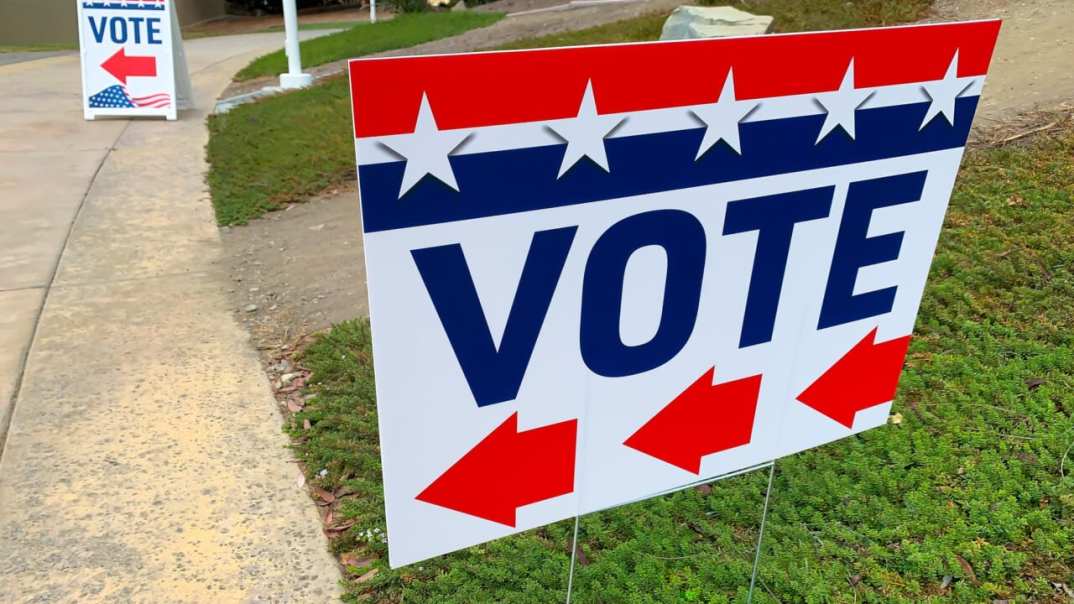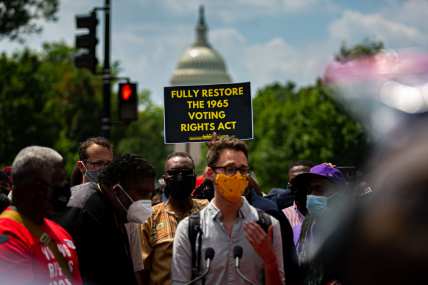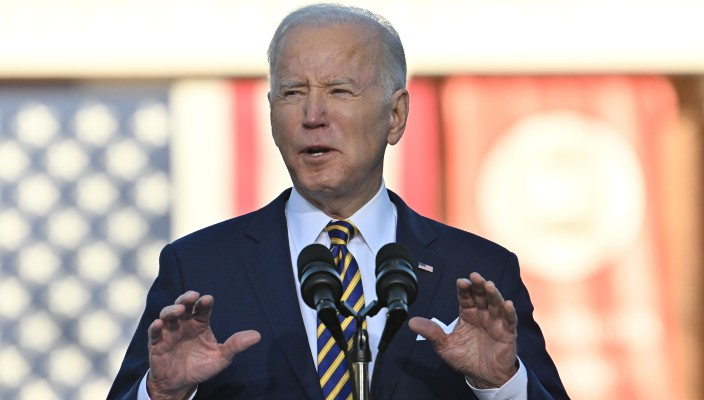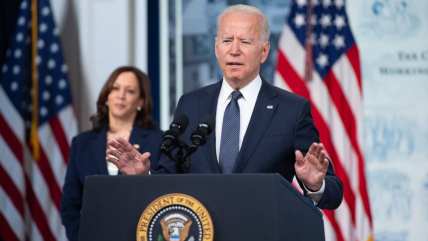The Freedom to Vote: John R. Lewis Act, Explained
OPINION: Voting rights are under the greatest threat in six decades, and the fundamental rights of Black voters are at stake. This is an all-hands-on-deck moment

President Joe Biden is promoting bold voting rights legislation and wants Democrats in the Senate to pass it. The stakes for the Democratic Party could not be greater, and the future of American multiracial democracy itself hangs in the balance.
Two landmark bills—the Senate’s Freedom to Vote Act and the House’s John R. Lewis Voting Rights Advancement Act—were merged to form the Freedom to Vote: John R. Lewis Act, which the House passed on Thursday. The Freedom to Vote Act standardized election laws and voter access across the nation, while the latter bill—named for the late civil rights activist and member of Congress—was an upgrade of the Voting Rights of 1965.

They will never let Black people vote
In a recent rally in Atlanta, Georgia—a Southern state that voted for Biden and Democratic Sens. Raphael Warnock and John Ossoff—Biden and Vice President Kamala Harris called for an end to the Senate filibuster requiring 60 votes to pass this vital legislation to counter the anti-voter and voter suppression measures enacted across the country.
Biden said the vote on this legislation will mark a turning point in America. “Will we choose democracy over autocracy, light overshadow, justice over injustice? I know where I stand. I will not yield. I will not flinch,” he said, invoking the January insurrection. “I will defend your right to vote and our democracy against all enemies foreign, yes and domestic! And so the question is where will the institution of the United States Senate stand?”
Harris declared the nation would pay the price for future generations if we fail to act on the measure, calling this “the first real opportunity to secure the freedom to vote since the U.S. Supreme Court gutted the Voting Rights Act of 1965 nearly a decade ago. We do not know when we will have this opportunity again.”
The legislation restores the preclearance process of Section 5 of the Voting Rights Act. Preclearance—which the Supreme Court eliminated in Shelby County v. Holder decision in 2013—requires certain states and localities with a history of voter disenfranchisement, threats, intimidation and coercion against Black people to seek federal permission before changing their election laws. Without that enforcement mechanism, the 15 states who were subjected to preclearance have had a Jim Crow free for all—enacting all types of racist voter suppression laws targeting Black people with “surgical precision.”
Further, the new voting rights bill makes it easier for groups to challenge racially discriminatory laws. In Brnovich v. DNC, which challenged Section 2 of the Voting Rights Act, the Supreme Court upheld Arizona’s anti-Latino voting laws and made it harder for people to sue for rules that disproportionately harm them.
Meanwhile, the Freedom to Vote: John R. Lewis Act also contains a host of election reforms across the 50 states, including expanded voting access and a national standard for access to the ballot. This comprehensive bill—the most sweeping in years—would create standardized election laws throughout the country, a national standard for states with voter ID laws and make Election Day a federal holiday—making it easier for people to vote.

But the legislation doesn’t stop there. Early voting would extend to 15 days, and no-excuse voting by mail and same-day, online and automatic voter registration would be universal.
In addition, this bill combats voter suppression by eliminating long lines at the polls—which are too common in Black neighborhoods—and limiting wait times to a half hour. The act would punish voter intimidation and deception and do away with outrageous laws such as the ban on giving food and water to voters waiting in line. And the formerly incarcerated would have their voting rights restored upon release from prison.
In the area of redistricting, the bill would eliminate political and racial gerrymandering. Republicans are employing extreme redistricting right now to create state maps dominated by whiter and whiter majority-Republican districts–even in places like Texas, where Black and brown people are the majority population and account for the state’s population growth.
Moreover, this piece of legislation would protect local election officials from removal for political reasons, stop voter purges and vote tampering, and allow people to sue for a failure to certify election results. And if signed into law, the Act would provide for election security by requiring paper ballots and transparent election audits.
Finally, the bill tackles big money and dark money in politics by requiring secret groups to disclose their donors, halting the funneling of foreign money into U.S. elections, and establishing a campaign finance system based on small-donor matching funds.
White conservative groups supporting voter suppression call this legislation to expand voting unnecessary, a threat to “election integrity”—a concept with Jim Crow origins—and a federal takeover of elections by the left.
The voting rights and election reform legislation likely faces no Republican support, and obstruction from Democratic Sens. Kyrsten Sinema (D-Ariz.) and Joe Manchin (D-W. Va.), who have received funding from Republican and Trump donors to wreck the Biden agenda and oppose changes to the filibuster to pass voting rights legislation. Indeed, Sinema took to the House floor Thursday to restate her opposition to changing the filibuster while claiming to care about voting rights
With the midterm elections looming, white nationalist-controlled states are rushing to pass new voting laws to steal elections and preserve white minority rule. In 2021, 19 states passed 34 laws making it harder to vote. And red states are engaged in extreme gerrymandering and other measures such as “Stop the Steal” election subversion laws allowing GOP-controlled states to plot the next coup by removing and replacing local election administration officials, and changing election results. Voting rights are under the greatest threat in six decades, and the fundamental rights of Black voters, voters of color and others are at stake. This is an all-hands-on-deck moment.

David A. Love is a journalist and commentator who writes investigative stories and op-eds on a variety of issues, including politics, social justice, human rights, race, criminal justice and inequality. Love is also an instructor at the Rutgers School of Communication and Information, where he trains students in a social justice journalism lab. In addition to his journalism career, Love has worked as an advocate and leader in the nonprofit sector, served as a legislative aide, and as a law clerk to two federal judges. He holds a B.A. in East Asian Studies from Harvard University and a J.D. from the University of Pennsylvania Law School. He also completed the Joint Programme in International Human Rights Law at the University of Oxford. His portfolio website is davidalove.com.

